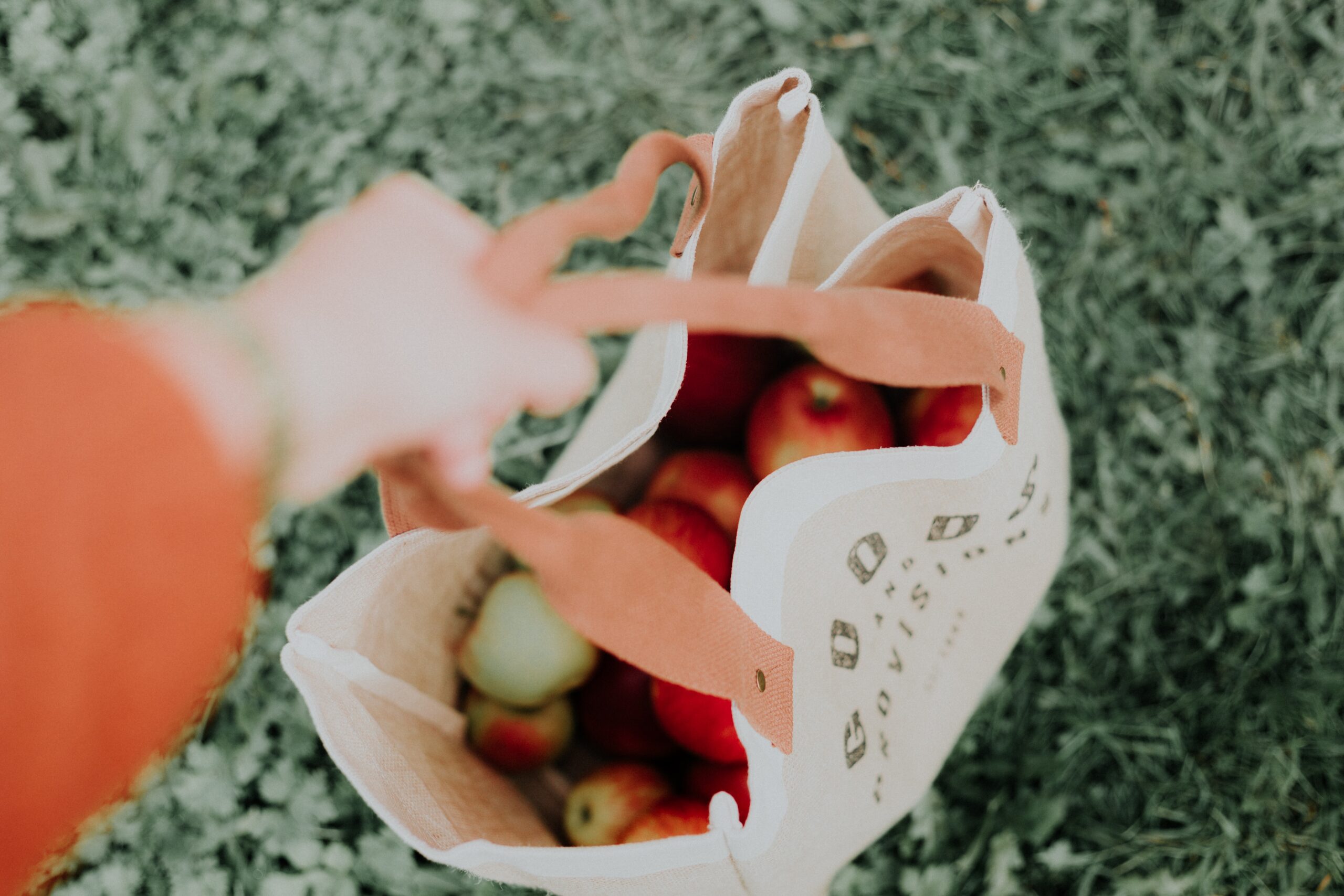Are you afraid that inflation may be on the rise and want to know the type of food to buy before inflation hits? While it’s true that high inflation is just right around the corner, it doesn’t mean we can’t prepare for it!
With a bit of planning and foresight, you can fight the rising prices of goods and services with a few simple purchases. It’s true that when inflation hits us, food costs as well as other everyday groceries and items become more costly – so it’s a good idea to stock up on the necessities.
Let’s take a look at some of the food to buy before inflation hits. We will be also sharing what not to buy so that you can make the most of your grocery budget:
What is inflation anyway?
Inflation is when the average price of goods and services increases over time. This results in the value of money decreasing, meaning that it takes more money to purchase the same amount of goods.
In other words, you may have to pay more to grocery stores now than you did a few years ago because inflation has taken its toll on prices. You are basically paying extra money for the same item.
For example, let’s say, in your local grocery store, three years ago the normal price of a loaf of bread was $2.00 and now it costs $2.50. That’s because inflation has increased the price by 25 cents.
The average inflation rate in the United States is usually around 2 to 3 percent each year. But in recent times, it has been much higher due to economic downturns.
It also becomes harder to save money since the price increases for goods and services. If you have a fixed income, it’s even more difficult to make ends meet.
How are food prices and inflation connected?

Food prices and inflation are closely linked. When inflation rises, food prices often go up as well because of the increased cost of production as well as the shipping costs.
For example, if the cost of labor or materials increases due to inflation, it will impact the cost for farmers and producers to make food products. This in turn could lead to higher prices at the grocery store.
The prices of food staples like grains, rice, and beans are also affected by inflation because they are often used as a barometer to measure the cost of living. If these basic items become more expensive, it can have a major impact on how much money you will need to buy food for your family.
If you plan ahead, invest in the right investment vehicles (e.g. real estate investment trusts, gold, high-yield savings account, stocks, etc…), and create multiple income sources to protect yourself from inflation, you will be able to manage the increased cost of food prices better.
What to consider before buying foods in bulk during inflation?
When buying food in bulk during inflation, there are a few things that you should consider before making your purchase.
1. Quality
So the first and the most important thing to consider is the quality of the food that you are buying. Since prices may be higher during inflation, it’s important to make sure that you are getting the best value for your money.
Look for foods that have a longer shelf life and are sourced from reliable suppliers so that you can count on their quality. Don’t go for generic brands or last-minute deals as they may not be of the same quality.
2. Cost
Another important factor when it comes to buying food before inflation is the cost. During inflation, food prices tend to go up, so it’s important to compare the cost of different foods before making your purchase.
Do your research and look for stores that offer discounts on bulk purchases or have sales on certain items. Use the coupons that you are collecting for quite a while and stock up on food items when they are cheaper.
3. Expiration date
The last thing to consider when buying food during inflation is the expiration date. It’s important to check for the expiration dates on any food item that you buy as it could go bad if not consumed before its expiration date.
Also, look for foods that don’t spoil easily such as canned goods, grains, and dried fruits. This will help you save money in the long run and ensure that your food does not go to waste.
4. Storage
You don’t want to overstock your fridge or cupboards beyond capacity, so make sure that you have enough storage for the food items that you buy. Look for containers or shelves where you can store your food safely and properly.
If you have empty shelves in your house, consider investing in stackable containers or shelving units to help you store more food items.
This will help in keeping them fresh and also prevent spoilage. Also, make sure to check how long the food will last before it needs to be thrown away – as it will help you properly stock up without having to throw out food that has gone bad.
5. Variety
When buying food during inflation, variety is an important factor. Although it’s better to stock up on items that are more affordable, you should also ensure that you buy a variety of foods so that your meals don’t get boring and monotonous.
This will give you more options when it comes to meal planning and make sure you don’t get stuck eating the same thing all week. A change of taste and flavors is always nice when it comes to eating meals, so make sure you get enough variety of food items.
What food items to buy in bulk before hyperinflation hits?

Here are some of the best food to buy before inflation in bulk:
1. Canned foods
Canned foods are a great option for buying in bulk before hyperinflation hits. They have a long shelf life, are easy to store, and provide a variety of nutrients.
Look for canned goods that are high in protein, such as canned meats, beans, and fish. Canned vegetables and fruits are also great options as they retain most of their nutrients and can be used in a variety of dishes.
Make sure to check expiration dates before purchasing in bulk.
2. Baking soda
Baking soda has a lot of uses and is great for stocking up on during inflation. It can be used to make quick breads, cakes, cookies, and other foods and baked goods.
It also has many health benefits such as helping with digestion and boosting immunity. Look for baking soda that doesn’t have added chemicals or preservatives, as these may affect the taste of your food.
3. Rice
Rice is a great staple food to buy in bulk before inflation hits. It has a long shelf life and can be used in many dishes, making it an ideal item to stock up on.
Look for varieties of rice that have higher nutritional value such as brown rice or wild rice instead of the more common white rice. These will help you get more vitamins and minerals in your diet.
4. Pasta
A popular food item to buy in bulk before inflation is pasta. There are a variety of shapes, sizes, and flavors of pasta that you can choose from, making it easy to create different dishes.
Look for whole wheat or gluten-free options as they have higher nutritional value than regular white pasta. You can also buy larger packages of dried pasta as they last for several months and you can use them for multiple meals.
5. Flour
One of the most common household items to buy in bulk before inflation is flour. It’s a versatile ingredient that can be used to make bread, pastries, and other baked goods.
Look for whole wheat or almond flour as they provide more nutrients than traditional white flour. Also, check expiration dates as some flours can expire quickly and can become rancid if not used in time.
6. Cooking oil
When it comes to food to buy before inflation, cooking oil is definitely one of the most important items. It’s used in just about every meal you can make and it’s relatively inexpensive compared to other foodstuffs.
As such, you should stock up on multiple bottles of cooking oil before inflation hits so that you have enough for all your needs. It’s always a good idea to buy a few different types of oil so that you can adjust the flavor and texture of your meals to suit your tastes.
7. Spices
Spices have a long shelf life, so they’ll be a great item to buy before inflation hits. You can find spices in all sorts of price ranges so you can buy them in bulk easily. Just make sure that you have an adequate supply of the meals you plan to make.
Spices not only add flavor but also help preserve food for longer, so it’s a good investment to make. For example, cumin and chili powder help keep food fresh for up to six months if stored correctly.
8. Powdered milk
Inflation is also a great time to stock up on powdered milk, which has an incredibly long shelf life and can be used in many recipes. Powdered milk is much cheaper per serving than fresh milk, so it’s a great way to save money while still getting all the nutrients you need.
It’s also great for baking, as you can use it in place of fresh milk and it will still result in delicious treats. So if you have the room to store it, adding powdered milk to your pre-inflation shopping list is definitely a good idea.
9. Instant coffee

Are you a coffee lover? Then you should also add instant coffee to your pre-inflation shopping list. Instant coffee has an incredibly long shelf life and is a great option for saving money on expensive coffee drinks.
Plus, it’s much easier to prepare than regular brewed coffee and requires less effort, making it ideal for busy mornings when you need a caffeine boost quickly. So be sure to pick up a few jars of instant coffee before inflation hits so you can still enjoy your daily cup of joe.
10. Tea bags
Similar to coffee, tea bags are a great item to stock up on before inflation hits. Tea bags have an incredibly long shelf life and they’re much cheaper than buying loose-leaf tea, so it’s definitely a smart choice for those looking to save money.
Plus, tea comes in all sorts of flavors and varieties, so you’ll be able to find something to suit your tastes no matter what. Just make sure you have enough for all the tea lovers in your family so everyone can enjoy a cup of tea even during inflation.
11. Peanut butter
Another food to buy before inflation is peanut butter. Peanut butter is a great item to buy before inflation hits because it’s incredibly versatile. It can be used in sweet and savory dishes, as well as snacks like sandwiches or smoothies, so you’ll have plenty of options for cooking and baking with it.
Plus, peanut butter has an incredibly long shelf life, so you won’t have to worry about it going bad before you’ve had a chance to use it. So make sure to stock up on multiple jars of peanut butter for your pre-inflation shopping list.
12. Crackers
Crackers are another item that should be included on your pre-inflation shopping list. They have a long shelf life and they’re incredibly versatile, so you can use them in all sorts of recipes and snacks.
Plus, crackers are relatively inexpensive compared to other items, so you’ll be able to stock up on enough for your entire family without breaking the bank.
13. Cereal
Cereals are cheap and loved by both kids and adults, so it’s a great item to buy before inflation hits. Plus, most cereals have a long shelf life, so you won’t have to worry about them going bad anytime soon.
Just make sure that you get varieties that your family loves and are willing to eat regularly so they don’t go to waste. And if you have the room to store it, adding cereal to your pre-inflation shopping list is definitely a smart move.
14. MREs (Meals Ready to Eat)
If you are looking for food to buy before inflation kicks in, consider investing in MREs (Meals Ready to Eat). These are pre-packaged meals that can provide you with a variety of different food choices.
They come in both single-serving and group sizes, so they are perfect for stocking up your pantry before prices start to rise. Most MREs have a shelf life of several years, so you can be prepared for months or even years to come.
15. Baking supplies
Another great option for food to buy before inflation is baking supplies. This includes flour, sugar, and other dry ingredients that can be stored in your pantry for a long time.
These basic ingredients will allow you to make bread, desserts, and other baked goods without relying on store-bought options. You can also use them to make healthier snacks, like granola bars and energy balls.
16. Olive oil
One of the most common household items in the USA is olive oil. It’s the cornerstone of many healthy diets, and it can be extremely beneficial when inflation hits.
Olive oil has an incredibly long shelf life, so it’s perfect for stocking up before prices start to increase. You can use it in salads, soups, sauces, or even as a cooking oil for sautéing and frying.
What food items you should not buy in bulk?

It can be very tempting to buy in bulk, but there are certain items that you should avoid when it comes to food to buy before inflation. Because these items have a short shelf life and can spoil easily, it may be more cost-effective to purchase them in smaller amounts as needed.
1. Fresh produce (fresh fruits and vegetables)
When it comes to o food to buy before inflation, you have to remember that fresh produce is a perishable item and can spoil quickly. While it may be more convenient to buy a large number of fruits and vegetables at once, they may not last long enough for you to enjoy them all before they go bad.
So don’t for freshly produced items, instead, opt for canned or frozen versions to stock up on. This way, you can still enjoy nutritious produce while avoiding food waste.
2. Fresh dairy products like milk, cheese, and yogurt
Another item to avoid buying in bulk is fresh dairy products. Milk, cheese, and yogurt can spoil quickly due to their high-fat content and because of this, it’s best to purchase them in smaller amounts as needed.
If you do decide to buy in bulk, make sure you store the items properly so that they don’t go bad before you have a chance to enjoy them. You also have to remember that the quality of milk, cheese, and yogurt can vary with time, so it’s best to consume them as soon as possible.
3. Fresh meat and seafood
Fresh meat and seafood are also perishable items that can spoil quickly and should be avoided when buying in bulk. While it is possible to freeze them, their quality will suffer with time and they may not taste as good after being frozen for an extended period.
It’s best to purchase these items individually or in small amounts and consume them as soon as possible. This way, you can enjoy the freshest and best quality of meat and seafood without having to worry about it going bad before you have a chance to consume it.
4. Bread
Bread can quickly become stale and go bad after a few days. While it may be more convenient to buy these items in bulk, the quality will decline over time, so it’s best to purchase them as needed.
This way, you can enjoy fresh bread or baked goods whenever you need them without having to worry about them going bad. So don’t buy bread in bulk, instead purchase it from a reliable bakery or store where you know that the products are of good quality and freshly made.
5. Eggs
Eggs can also go bad quickly if not stored properly and should be avoided when buying in bulk. Just like with bread, the quality of eggs will decline over time, so it’s best to purchase them as needed.
This way you can enjoy fresh eggs whenever you need them without having to worry about them going bad before you have a chance to consume them.
6. Baked goods
Baked goods such as cakes and cookies can also quickly go stale and should be avoided when buying in bulk. These items are best purchased from a reliable bakery where you know that the products are of good quality and freshly made.
By avoiding these items when stocking up on supplies, you can ensure that your food stays fresh and delicious for as long as possible.
7. Ice cream
Mose ice creams are made with dairy and can spoil quickly, so it’s best to avoid buying them in bulk. Instead, purchase individual containers of ice cream as needed to ensure that you’re getting the freshest and best quality product.
You can also make ice cream at home if you don’t want to buy it in stores. This way, you can enjoy fresh ice cream whenever you need it without having to worry about spoilage or food waste.
8. Fresh herbs
Similar to other fresh produce items, herbs can quickly go bad and should be avoided when stocking up on supplies. Instead, opt for dried herbs or frozen versions of the herbs as these will last much longer.
Herbs are a great way to add flavor to your meals without adding extra calories or fat, so make sure you’re getting the freshest and best-quality herbs to get the most out of them.
9. Soft drinks
If you have kids, they might be tempted to stock up on soft drinks in bulk, but it’s best to avoid buying large amounts of these sugary beverages. Soft drinks can quickly go flat after being opened and can even grow bacteria if not stored properly.
It’s best to buy these items as needed and encourage your kids to opt for healthier alternatives like water or fruit juices instead. This way, they can still enjoy a sweet treat without sacrificing their health.
10. Perishable condiments (mayonnaise, ketchup, mustard, etc…)
Most people think it’s a good idea to buy perishable condiments like mayonnaise, ketchup, and mustard in bulk to save money. However, these items can quickly spoil and should be avoided when stocking up on supplies.
It’s best to purchase individual containers of these condiments as needed so that you can enjoy the freshest and best quality products without having to worry about them going bad before you have a chance to consume them.
Besides food, what other items should you consider adding to your shopping list?

There are a few other items that you should consider adding to your shopping list other than food items. Let’s take a look at some of those items:
1. Toilet paper and paper towels
These two items are essential for keeping your home clean and hygienic. Make sure to stock up on these items as needed and purchase in bulk if you can so that you don’t run out when it’s most needed.
Inflation can make the price of these items go up, so it is always important to buy them in bulk if you can. You might also get discounts and free shipping when buying in large quantities.
2. Pet food
Do you have a furry friend? Pets will need food and other supplies, so make sure to add pet food and other items that your pet needs to your shopping list.
You can buy these items in bulk from most stores or online retailers, which can be a great way to save money and ensure that you never run out of food for your pet.
3. Personal hygiene items
Your personal hygiene items like soap, shampoo, and body wash should also be included in your shopping list. Keep a stock of these items so that you never run out and always have them on hand when needed.
In addition to these items, consider adding razors, toothpaste, mouthwash, and other hygiene essentials to your shopping list. Purchasing these items in bulk can be a great way to save money and always have them available when needed.
4. Cleaning supplies
Detergents, cleaners, and other cleaning supplies are necessities for keeping your house looking its best. Stock up on these items as needed to make sure that you never run out of them when it’s most important.
If you plan ahead and purchase these items in bulk, you can save money and always have the essentials on hand when needed. Look for discounts or buy in bulk to get the most bang for your buck.
5. Common medical supplies
Common medical supplies such as painkillers, vitamin supplements, and bandages should not be forgotten when stocking up on supplies. Make sure to add these items to your shopping list so that you always have them available when needed.
You can buy these items in bulk at most stores or online retailers, which can help save money and ensure that you never run out of essential medical supplies.
6. Basic kitchen supplies
When it comes to stocking items during inflation, it is important to invest in basic kitchen supplies that are necessary for food preparation and storage.
This includes items such as kitchen cleaners, gloves, cutting boards, etc… Invest in quality items that will last for years to come as they may be more expensive upfront but will save you money over time.
7. Batteries for torches, remotes, etc…
Another important item to stock up on is batteries for torches, remotes, electric toothbrushes, and other items. Investing in rechargeable batteries will help you save money in the long run as they can be recharged and used multiple times before needing replacement.
8. Gardening supplies
If you have a garden or balcony, it is also important to invest in some basic gardening supplies during inflation. This could include items such as soil, fertilizer, pots and planters, seeds, and other materials necessary for growing plants and flowers.
Investing in these items can help you save money as you will have the ability to grow your own produce or flowers rather than buying them paying high prices.
9. Essential household items such as light bulbs, extension cords, and hoses
Stocking up on essential household items such as light bulbs, extension cords, and hoses can help you prepare for inflation. Invest in quality products that will last for years to come and be sure to replace any worn-out or broken items regularly to ensure optimal performance.
10. Entertainment items such as books, board games, or crafts
Finally, it is important to stock up on items that can provide entertainment during inflation. This could include books, board games, or craft supplies such as paints and canvases.
These items can help you keep your family entertained without having to spend money on expensive activities such as movies, concerts, or traveling. Invest in quality items that will last for years to come so you can continue to enjoy them even during inflation.
Conclusion
So there you have it – now you know food to buy before inflation! It’s true that inflation can bring hard times, but with the right supplies and preparation, it can be something that you are prepared for. Invest in quality items that will last for years to come and be sure to stock up on all of the essentials mentioned above. Good luck!







